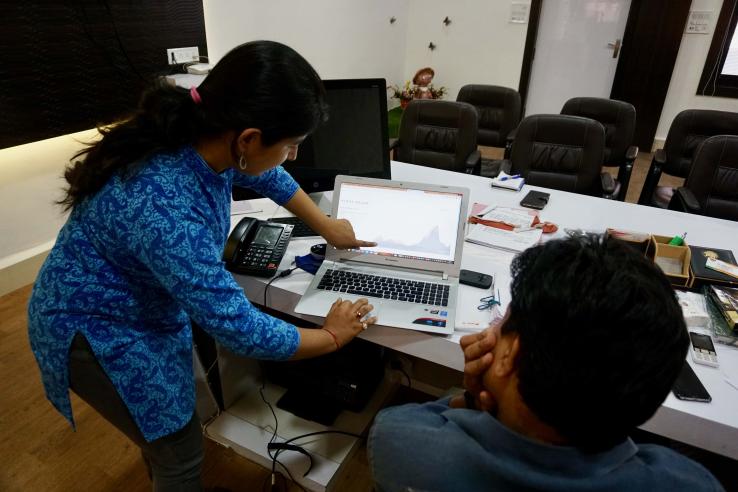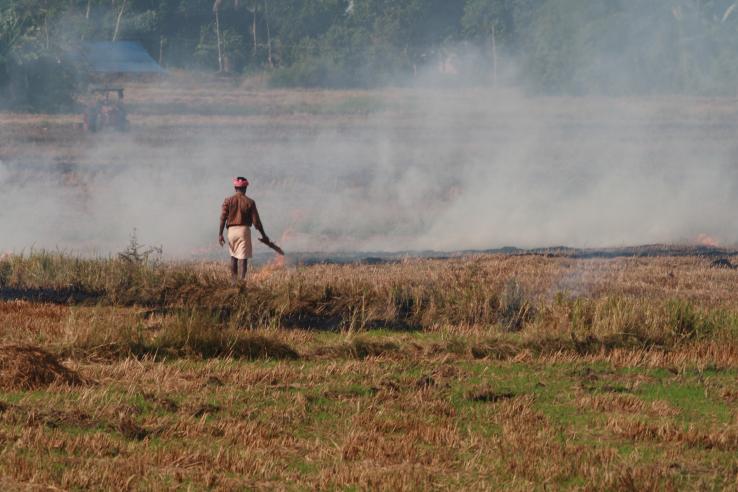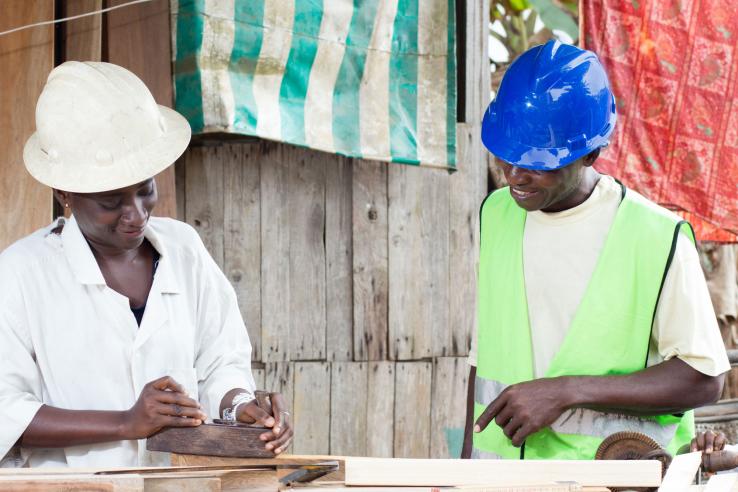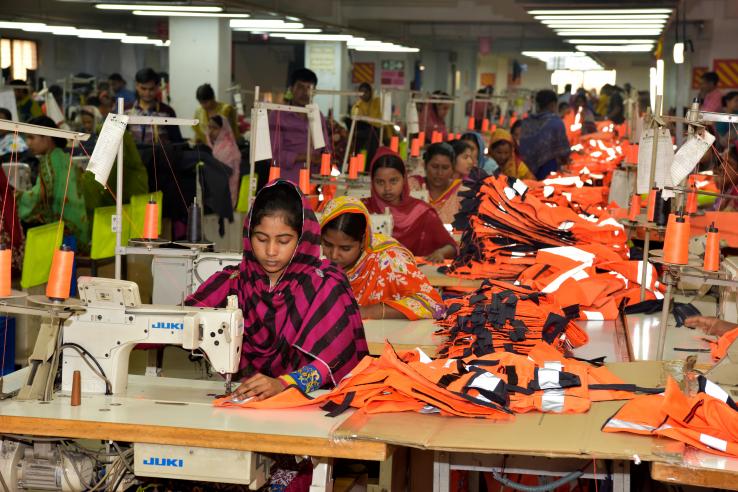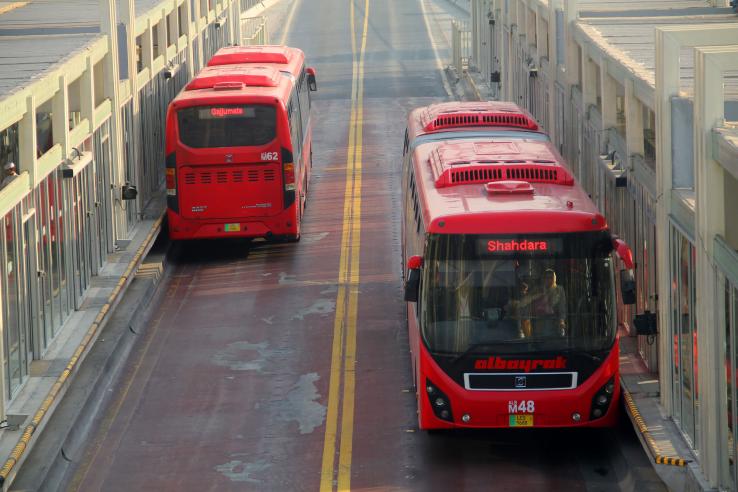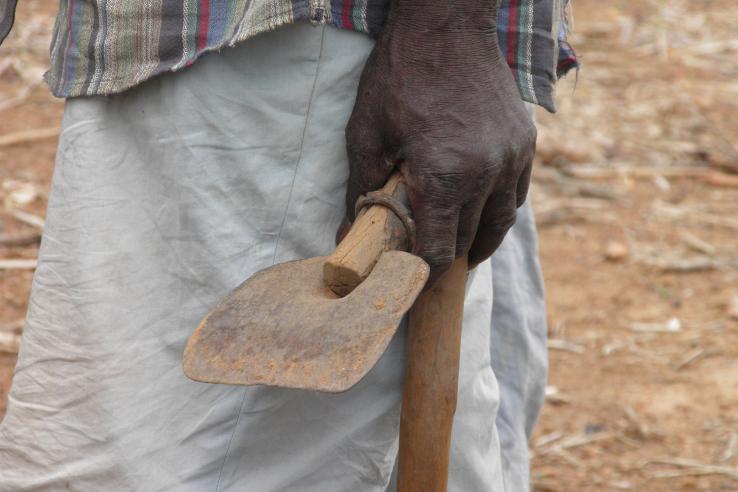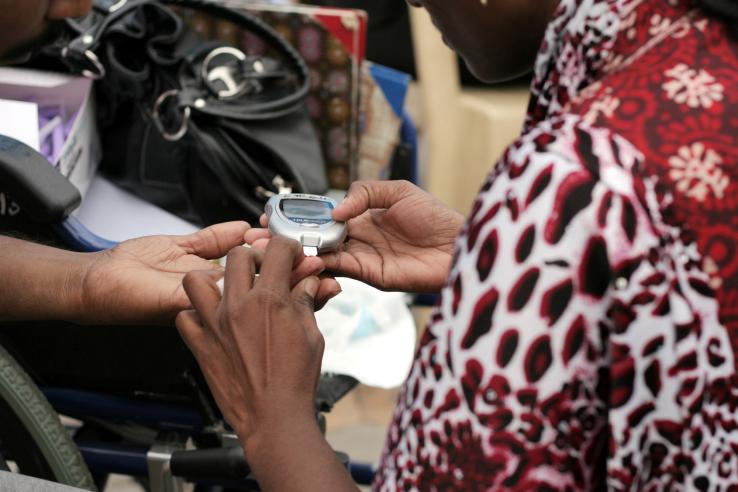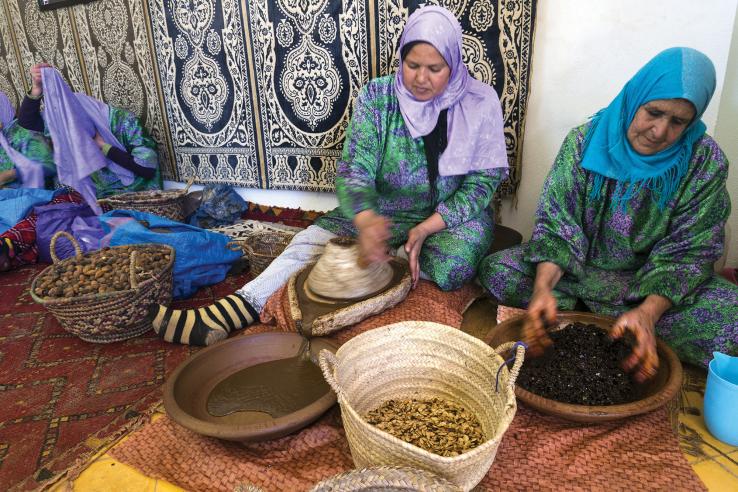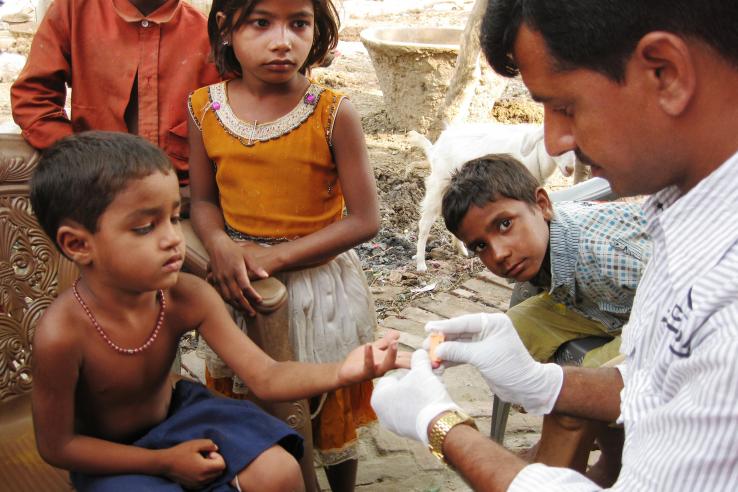Displaying 1261 - 1275 of 1291
Evaluation
Researchers conducted a randomized evaluation of a web and mobile-based management and monitoring platform, PayDash, to improve the administration of Mahatma Gandhi National Rural Employment Guarantee Scheme (MGNREGS). PayDash access reduced wage payment delays and increased household participation in MGNREGS.
Evaluation
Researchers are conducting a randomized evaluation to test the impact of a PES program that offers financial rewards to paddy farmers for reducing burning of crop residue (or “stubble”) on stubble burning in Punjab, India.
Evaluation
Researchers conducted a randomized evaluation during the 2018 property tax collection campaign to test the impact of delegating tax collection to local chiefs. Where local chiefs collected taxes, households were more tax compliant than where state collectors collected, mainly because chiefs had local knowledge about property owners and could better target collection to those more likely to pay.
Evaluation
Researchers partnered with the Côte d'Ivoire government to measure the short- and long-term impacts of a public works program, along with complementary trainings on basic entrepreneurship and job search skills. In the short term, the program led to a shift toward wage jobs (as opposed to self-employment), higher earnings and savings, and improved well-being. However, most of these effects dissipated in the long-run.
Evaluation
Researchers randomly assigned co-supervisors to production lines to evaluate the impact of exposing garment factory workers and supervisors to women managers on factory productivity, supervisor retention, and attitudes toward women. Several months after the intervention, there was no difference in productivity between lines managed by women and men, a higher rate of women promoted to supervisor relative to comparison factories, and more accurate ratings of women’s managerial abilities.
Evaluation
Researchers are partnering with Lahore Transport Company (LTC), the public vehicle operation regulator, to introduce routes for small vehicles, known as wagons, that feed into a bus rapid transit system and will reserve a portion of wagons for women only. Researchers will evaluate the impact of these investments in public transportation on employment outcomes as well as on women’s empowerment.
Evaluation
In Niger, researchers conducted a randomized evaluation to test the impact of providing training and conditional or unconditional cash transfers on farmers’ adoption and use of an environmental technology, their resulting land use, agricultural production and profitability, and labor allocation. Providing farmers with training led to a substantially higher probability of adopting the technology, while the conditional or unconditional cash transfers had no additional effect on farmers’ decision to adopt.
Evaluation
Researchers conducted a randomized evaluation to test the impact of reducing the psychological costs of job applications, such as the tendency to postpone applications because completing a task today seems more burdensome than tomorrow, on job application rates and interviews in Lahore, Pakistan. The intervention, which involved follow-up calls inviting job seekers to apply for jobs, increased the number of job applications and interviews. The benefits of applying to jobs were similar after the increase in applications, suggesting that psychological costs play an important role in job search behavior.
Evaluation
In partnership with the Government of Tamil Nadu, researchers evaluated the impact of incentivizing and monitoring walking on exercise and health. Incentives increased walking and improved health, as measured by risk factors for diabetes and by mental health.
Evaluation
Researchers partnered with CGIAR’s International Rice Research Institute (IRRI) to evaluate the impact of a flood-resistant rice variety on fertilizer use and crop yield in India. During floods, the flood tolerant seeds had a clear advantage over the traditional seeds. In non-flooded areas, there was no significant difference in yields between flood-resistant and traditional seeds, suggesting that there was no yield penalty in non-flood years to farmers who switched to the new seed technology.
Evaluation
In partnership with Bridges to Prosperity, the researchers are conducting a randomized evaluation across 23 districts in Rwanda to determine the impact of building footbridges on wages and agricultural technology adoption and production.
Evaluation
Researchers evaluated the impact of Padua, a holistic, individualized, wrap-around support program for individuals who have recently experienced a negative economic shock. Exploratory analyses suggest that Padua impacted housing and employment outcomes specific to participants’ individual needs.
Evaluation
Researchers estimated the impact of a microcredit program, which was randomly rolled out in rural areas of Morocco. Thirteen percent of the households in treatment villages took a loan, and none in comparison villages did. Among households identified as more likely to borrow, microcredit access led to a significant rise in investment in assets used for self-employment activities, and an increase in profit, but also to a reduction in income from casual labor. Overall, there was no gain in income or consumption.
Evaluation
In Bihar, India, researchers examined how double fortified salt could be most effectively priced, marketed, and distributed in order to have the greatest impact on a range of health, education, and economic outcomes.
